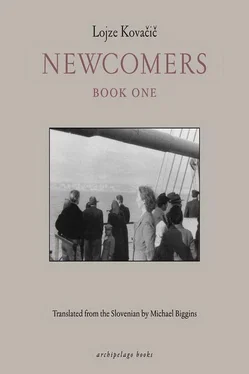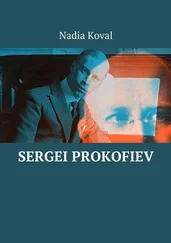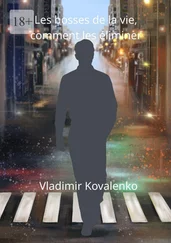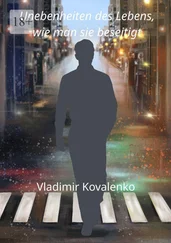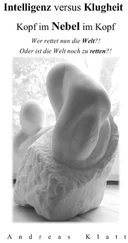In the woods we made paper airplanes and each of us was supposed to mark his with his country’s flag. I wanted to draw a white cross on a red field on mine … all the others were either Yugoslavia, England, America, France … or such far-off countries as Holland and Sweden … “You’re competing for Germany …” Pestotnik said. “No, I’m koink to pee Zvitzerlant …” “Others have already got Switzerland.” They stood there glaring at me, the pains. So I took my plane and on its wings and tail drew a swastika, which I didn’t like because it was so prickly, like four linked gallows … Coats of arms with swords, lilies, or lions were completely different. We assembled along a line in front of the building site. Three heats. The plane that flew the farthest and longest would win … In one of the heats the winning plane bore the sign of the swastika … So I had won.
Out of the blue old Slabe, the Frenchman, started coming out to the woods, a toothless old grandfather in a white shirt, white cap and white tennis shoes … He taught us fencing … At first we each smoothed off a stick and attached the cover of a box of shoe polish at one end as a foil guard to protect our fingers … In the clearing he showed us the various basic thrusts … eight in all … and especially a trick for assuring victory in a match. In the usual course of crossing foils, instead of going after and parrying your opponent’s tip … you plant your foil diagonally into the floor in front of him, while your opponent, whom you’ve tricked while he’s holding his foil in a horizontal position, naturally strikes downward to protect his legs, but just as he does that, you lift your foil up, striking him in the chest on the heart side with its tip. A kill!.. All of us learned it and it would have been monotonous if we didn’t know other basic attacks and didn’t use the trick at various intervals … Somewhere in the middle or at the end of a round, after several warm-up lunges on the ground as we leapt from stump to stump while fencing. But your eyes had to be quicker than your opponent’s … The Frenchman’s wife, a tiny woman in an apron fastened across her breasts, who raised flowers and vegetables to sell at market, would get angry at her husband and make fun of him … Every so often she would call to him from on top of the flat roof of their half-built house to come home and get to work, her shouts echoing all through the woods, but he would pretend he was deaf … Others made fun of him, too, but everyone liked him more than they liked his wife … After every competitive round he would solemnly praise us after lining us up. He also taught us boxing. Not knockout punches, which each of us already knew, but hooks and uppercuts and how to block punches. Word was that he had once been a wrestler or trainer, and ultimately a referee too … he showed us a photograph on a scrap of a French newspaper: him dressed in white with a black bow tie. What was he like? You couldn’t make fun of him. He went jumping around so earnestly when we practiced. And his gray eyes bulged so severely whenever we broke a rule that we had to take him seriously. Mornings he would already be waiting for us, as we’d agreed, past the bushes in the clearing, all dressed in white and with the wet gray fur that grew out of his ears … He would ask if we’d slept well and then we were off, repeating the previous day’s lesson after him. There was no difference between him and the kids, we could address him informally … When occasionally he had to go watering flowers with his watering can and we had to wait for him over in the clearing he would be red in the face with embarrassment … Once mother, Gisela, Clairi, Vati, and I were invited to his house for a visit … Vati didn’t want to go … He never liked paying visits, or formalities … The Frenchman’s wife showed us around their house. Everywhere you looked there were colorful things … variegated curtains, multicolored furniture, rainbow bedcovers and curtains, yellow, red, and green throw pillows … it was as if you’d walked into the wagon of some circus performers. I liked it … From their flat roof, where his wife always called to her husband and the Frenchman was supposed to finish the house by building another story, if only he hadn’t been so lazy and run out of money, there was a beautiful view: over the grain fields all the way to the forest and then across more fields to the cemetery and airport. They were constantly at odds with the Jakličes, who wouldn’t let them take the road across their property … so the Frenchman’s wife had to take all her flowers, which grew near the neighbor’s beds, and take them on a cart back to the house and only then set out on the road into Ljubljana … She brought glasses of lilac juice which she herself made out to the garden for each of us … She smiled a lot, she didn’t seem at all as hard-hearted as she did on the roof, and the Frenchman told a few jokes from Paris … During our visit mother constantly kept looking over at the new four-story building where tall, stout Mrs. Gmeiner lived. Now the one boy, who was my age, was joined by a brother who was a student of engineering. According to the Frenchman’s wife some bank officer, a Slovene, was also paying occasional visits. Mrs. Gmeiner was reportedly from Vienna and an Austrian, but she kept very much to herself and hadn’t even exchanged a word with the Frenchman yet … One day I ran into her. It was pouring buckets and I was coming home from school without an umbrella and soaked to the skin, when I noticed her in a shiny black leather coat holding an umbrella in one hand and a cape in the other, running through puddles past the houses across from the school, which was on St. Martin’s Road. Her little boy was just then coming back by a shortcut nearby and she shouted out, “Mein armes Büblein!” *An instant later she had him wrapped up in the cape. I was jealous. My mother would never have done anything like that …
One fine day we finally got to meet her. How? Had mother tried to pump her for money or had she sold her some fur item of Vati’s?… The lady came down to the road with her friend, the bank officer, and her younger son, where we were waiting for them, as she and mother had agreed beforehand. Together we went down a road past grain fields and clover to some neat little houses, then back to where the farmsteads began and finally down the road into town. I wanted to talk to Leon who knew Slovene really well, since he had been here since first grade. But he was too fragile and delicate for me to get any halfway lively conversation going. I could barely get him to go with me onto the grassy escarpment over the road, where it was nicer to walk. We looked at the castle, all lit up and crystalline in the early twilight, and the bank officer, who was wearing a white raincoat and had a black mustache and sideburns … he appeared to be quite the cosmopolitan gentleman … explained what a nice local practice it was, “alte Schlößer und Monumente am Abend zu beleuchten.” †At last they invited us over for some stewed fruit. Everything still smelled of mortar and our footsteps echoed through the big, empty building as we climbed up its modern staircase. It was a handsome apartment with big windows, and her son the student was drawing some schematics in the kitchen on a big drafting board. In the living room, which was full of rugs and armchairs, Mrs. Gmeiner wound up the gramophone … “An der schönen, blauen Donau,” … “Wien, Wien, nur du allein.…” ‡Mother sat fearfully in a chair, her arms nervously folded, while Clairi, who was all excited, began swaying on the sofa in waltz time and humming along and clicking her tongue, “tsk tsk tsk …” At his mother’s insistence, Leon showed me a box containing arrows and a target … we played for a while … After the stewed fruit we left. The lady from Vienna and her bank officer lay down on the sofa in the living room and Leon, whose health was fragile, soon went to bed. I stayed for a while in the kitchen with the older one, the student, and because I liked drawing, watched as he used charcoal and a fountain pen to shade in big and small turbine screws. Through the open door I saw feet resting on the edge of the sofa … coarse male feet in polkadots and hers with their tiny heels in silk stockings, which excited me. I also heard her voice as the springs squeaked, “Laß mich in Ruhe, du! Laß mich in Ruhe …” §Women really did have it rough … Suddenly something began to rumble as if out of hell. Military planes, one, then another, flew right over the house … almost touching the roof with their wings … They were fighter planes, that much I guessed right away from the machine guns alongside their cockpits. The panes in the windows growled and a whole avalanche was released through the upper stories, causing my mouth to go dry … The airplanes vanished together with the lights on their wings in the direction of the airport … All of us jumped up, except for the student. “There’s going to be a war,” he said as he continued to draw. “The Germans are going to come any day and send this whole Yugoslav circus to hell …” It was the first time I’d heard somebody saying in Slovene that Germany was going to destroy Yugoslavia. And with such zest! That had a strong effect on me … But the young man’s face was so focused and serious when he looked at me that I believed him …
Читать дальше
